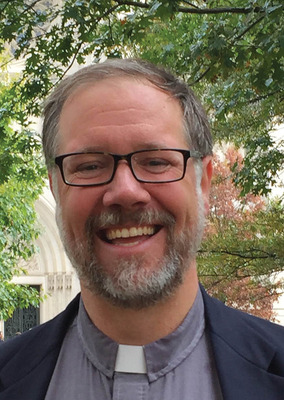Congregational Vitality
OBJECTIVE:
Recognize the diverse God given gifts of each member of the church and amplify these gifts through worship, formation and service. Congregational vitality is an outgrowth of the laity and clergy using their gifts and resources to love and serve ourselves and our neighbors.
DIOCESAN LEADERSHIP COMMITMENTS:
- Support and equip lay and clergy leadership to identify the resources and gifts of the congregation and discern how these gifts can lead to lifegiving worship and outreach and operational practices.
- Connect congregations to ideas, resources and other congregations that will create a strong foundation to offer their gifts to the wider world (Focus areas might include trainings on vestry, stewardship, youth ministry, formation, financial management, administration and volunteer coordination best practices).
- Create and maintain networks of churches, affinity groups, and volunteers to work with congregations and missions that aid and unite congregations and missions in shared ministries.
- Empower lay leadership of all ages by providing lay leadership trainings and developing and utilizing the work or the Lay Commission on Ministry.
- Assist and encourage congregations to leverage digital tools for worship, communication and outreach.
- Recognize historic barriers to funds and wealth for historically Black and Hispanic congregations that have hindered vitality and assist in dismantling those barriers.
CONGREGATION AND INDIVIDUAL COMMITMENTS:
- Identify and assess the skills and gifts of members and discern how these gifts will be used to strengthen your congregation and community.
- Develop and empower lay leadership of all backgrounds, ages and abilities to engage in the life of the church and in the broader community.
- Embrace and utilize technology for worship and connection with members and with the wider community.
- Encourage creative worship experiences that are rooted in tradition and engage and inspire spiritual growth for diverse members of your community.
- Collaborate with local non profit organizations, diocesan staff, neighboring churches and participate in diocsean offerings that strengthen your congregation.
RESOURCES:
DIOCESAN
- For Clergy
- For Parishes & Vestries
- Children and Youth
- Campus & Young Adult Ministry
- Formation
- Episcopal Asset Map
FINANCIAL
LAY MINISTRY
- Coming soon
BE INSPIRED:
- All Kinds of Collaboration (Disciple, Spring 2024)
- St. John's, Wake Forest: An Intergenerational Tapestry (Disciple, Winter 2024)
- Online Community: Through the Screen (Disciple, Winter 2023)
- St. Martin's, Charlotte: Culture Shift (Disciple, Summer 2022)
- St. Anne's, Winston-Salem: Widening the Welcome (Disciple, Winter 2022)
- Preach It! (Disciple, Fall 2021)
- Abundant Life Ministry: The Abundance of Community (Disciple, Fall 2020)
- The First Line of Help (Disciple, Summer 2018)
WATCH:
Shared at the Special Convention on March 5, 2022, this video provides an overview of what we're trying to accomplish with the priority along with stories of work already happening.
First shared in August 2021, this priority did not originally contain Goal 6, accessibility for all. For information on that goal, please see the video in which it originally appeared.
 Canon to the Bishop
Canon to the Bishop
 Mission Strategy Coordinator
Mission Strategy Coordinator
 Canon Missioner
Canon Missioner
 Canon Missioner for Black Ministries
Canon Missioner for Black Ministries
 Canon Missioner for Diocesan Restitution and Reparations Ministry
Canon Missioner for Diocesan Restitution and Reparations Ministry
 Canon Missioner for Latino/Hispanic Ministry
Canon Missioner for Latino/Hispanic Ministry
 Transition Ministry Officer
Transition Ministry Officer
